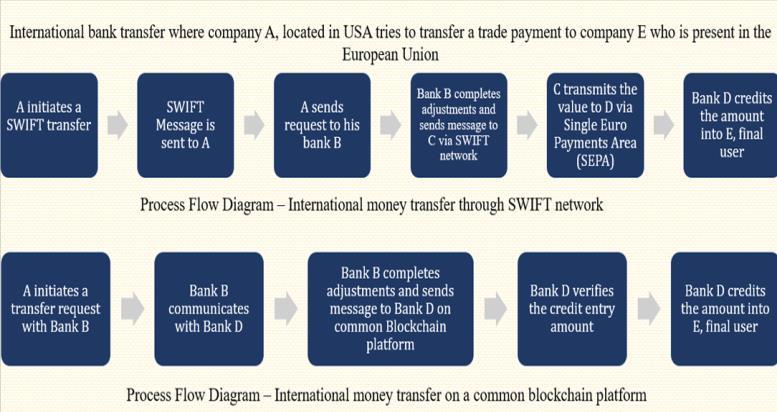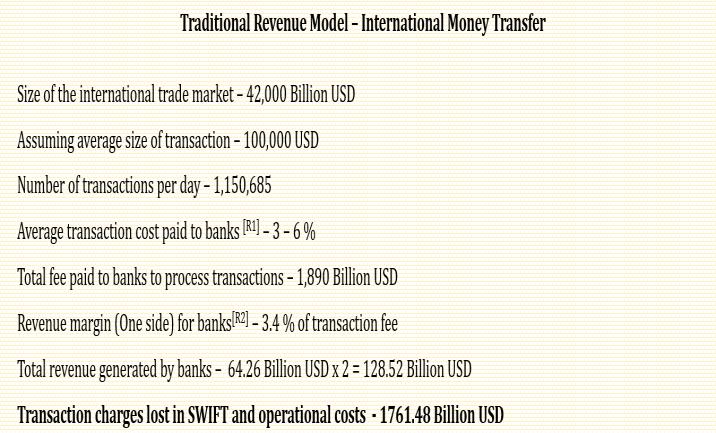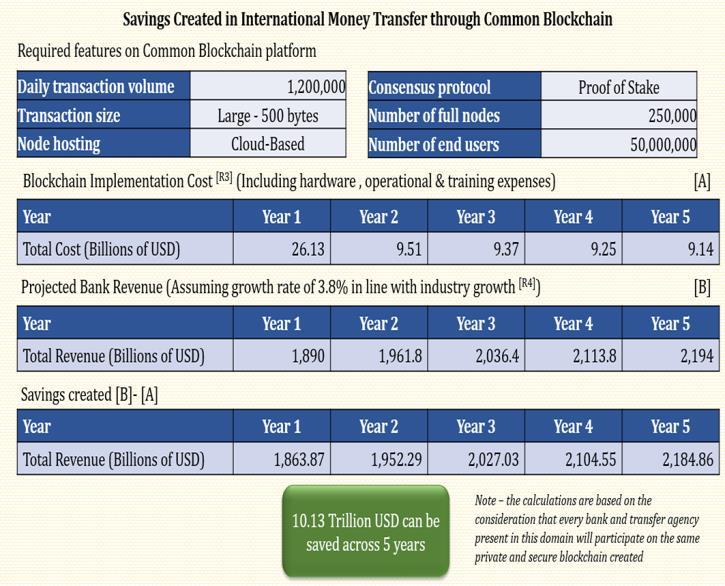
5 minute read
Impact of Fintech on International Trade And Supply Chain Finance
from JULY 2020- FINTECH
by Samvad We
OPERATIONS
Advertisement

Rashmi & Shravan M Parsam Management Institute, Manipal

–PGDM 2019-2021, T. A. Pai
Pierre Gramegna, Minister of Finance, Grand-Duchy of Luxembourg

A term coined in the early 21st century, FinTech integrates the application of cutting-edge technology such as Blockchain, Artificial Intelligence, etc. with the existing backdrop of financial services. This has created more value for companies and customers by reducing processing time and saving immense amounts of money and effort. Initially, FinTech was associated with the backend support it provided in banks for completing transactions digitally. Over time, this space has emerged into a market of its own. The industry was valued at 127.66 Billion USD in 2018 and is expected to touch 309.98 Billion USD by 2022, with a CAGR of 24.8%. The potential and value this domain brings to the forefront is mammoth. To understand the ramifications it can have on international trade and supply chain finance, it is imperative to first understand the landscape of these markets.

International trade has a market size of nearly 42 trillion USD, almost double the size of the GDP of the United States of America. With myriads of tariffs, permits, and rigid regulatory practices, the industry is laden with a profusion of pain points. Any supply chain would typically consist of the movement of goods, information, and finances. The most daunting problem of the supply chain linked to international trade is its speed. The size of the air cargo market is 63.7 MMT (millions of metric tons), while the cargo shipping stands at 2900 MMT. This inherently
demonstrates that a considerable chunk of the

market runs on a slow mode of transport, which, when coupled with rigid regulatory and verification norms, wreaks havoc on operations' speed, dropping it to an abysmally low figure. This article focuses on how FinTech can help
address this conundrum and which technologies might hold the key to reduce the industry pain points.
Although FinTech cannot help much to hasten the organically sluggish business of product movement, it can revolutionize the information and finance aspects of the supply chain. The major predicaments in supply chains are lack of visibility of the cargo upon delivery and enormous wait time affecting the international transfers. These can be decimated by leveraging the Internet of Things (IoT) and Blockchain technologies, respectively. Incorporating IoT will enable end-to-end visibility, thereby causing the flow of information within the supply chain to be transparent. It provides real-time tracking and monitoring to ensure that the cargo has been delivered correctly or pinpointed where it was compromised. This visibility is critical in reducing the many levels of paperwork and redtapism involved in processing cargo. The question now is why a FinTech company would be interested in investing in a technology that offers logistical assistance. The answer is insurance.
In the year 2015, the size of cargo insurance market was estimated to be 45.65 Billion USD. Assuming a nominal growth rate of 3%, the current size of the market is said to be at a ballpark figure of 50 Billion USD. With such humungous sums of money involved, the need for security becomes exigent. With the advent of IoT, insurance companies can now invest in technology to enhance the value they provide to the customers and reduce fraudulent claims simultaneously.
Having considered the aspect related to the transmission of information, let us now look at the next logical step, movement of finances. 60% of B2B international transfers would require multiple manual interventions, each lasting no less than 15 –20 minutes. The same can be attributed to the variation in account structures globally, establishing a communication channel between the two parties' banks and the investigations probed into these transactions.

Another critical factor causing this inertia is the processing of transfers is returns, which consume the same amount of time as transfer initiation. A transaction over SWIFT (Society for Worldwide Interbank Financial Telecommunication) on an average would take 3 -5 days for its completion. Processing would take much longer if the location banks are situated in mutually non-friendly time zones and if multiple parties are involved. Maneuvering of Blockchain in this process would revolutionize the trade transactions as we know them.
From the graphic above, it can be observed that intermediaries in transactions can be eliminated, and the process can be quickened by implementing blockchain. An international trade transfer initiated the same can be executed within 2 –12 hours, leveraging the blockchain technology.
By establishing Blockchain as a part of FinTech offerings, the company would not only enable quick transfers but would also enhance the security and integrity of the system multifold. After comprehending the advantages of these technologies, it becomes critical to evaluate them against their investment cost and understand that this technology's execution would be rendered useless if organizations across the globe do not extend their unexpurgated participation in it. The industry's current phase attributes to a multitude of companies weighing their opportunities and trying to collaborate to decrease costs
internationally. The following graphic aims to establish the importance of the same: After understanding the power of collective investment in common blockchain platforms, let us now focus on developing such deals in current times. One of the largest alliances of FinTech and International Trade is TradeLens. Maersk, the global leader in shipping, has teamed with IBM to start its own blockchain shipping called TradeLens. TradeLens focuses on "increasing industry innovation, reducing trade friction, and ultimately promoting more global trade." Recently, TradeLens also added new players like Mediterranean Shipping Company and CMACGM, which are the second and fourth most significant companies in this industry, respectively, after the leader Maersk. It is hence unequivocal that technology is not only reducing physical distance but has also been successful in bringing a production of competitors together to create more savings and enhanced value for their customers. FinTech is

transforming the face of international trade, --------------------------o-------------------------

more so now than ever before.






